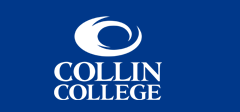Abstract
Professor Introduction: The Researched Argument
Research in Progress for ENGL 2332: World Literature I
Faculty Mentor: W. Scott Cheney, Ph.D.
The following paper represents work produced by a student in a World Literature I course at Collin College. Students who take World Literature I, ENGL 2332, read a selection of texts that survey world literature from the ancient world through the sixteenth century. Students study works of prose, poetry, drama, and fiction in relation to their historical and cultural contexts.
In what follows, students have written essays that require them to research a work of literature and enter into a written conversation with the academic articles that they find. Kenneth Burke calls this process an “unending conversation” and describes it this way:
Imagine that you enter a parlor. You come late. When you arrive, others have long preceded you, and they are engaged in a heated discussion, a discussion too heated for them to pause and tell you exactly what it is about. In fact, the discussion had already begun long before any of them got there, so that no one present is qualified to retrace for you all the steps that had gone before. You listen for a while, until you decide that you have caught the tenor of the argument; then you put in your oar. Someone answers; you answer him; another comes to your defense; another aligns himself against you, to either the embarrassment or gratification of your opponent, depending upon the quality of your ally's assistance. However, the discussion is interminable. The hour grows late, you must depart. And you do depart, with the discussion still vigorously in progress.
The researched argument requires the author to not only read the assigned piece of literature but also to read the corresponding conversation about that work in academic journals. The literary critics who write academic articles always respond to the ideas of other scholars, and the purpose of this paper is describe this conversation and choose a side of the issue to argue. This paper is not merely a summary or an evaluation; instead, the author must make an argument about some aspect of the literary work.
Recommended Citation
Trantham, Ellery
(2017)
"Different Equals,"
Quest: Vol. 1, Article 6.
Available at:
https://digitalcommons.collin.edu/quest/vol1/iss1/6




Faculty Mentor
W. Scott Cheney, Ph.D.